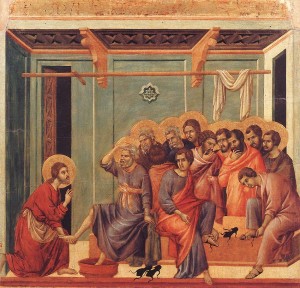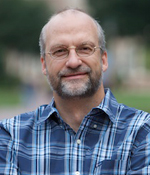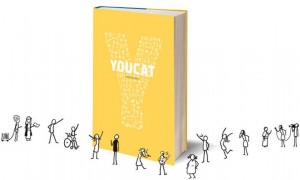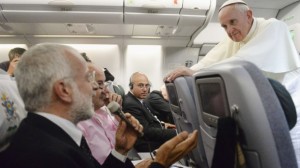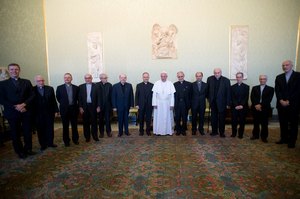
It is usual with a new Roman Pontiff that a meeting happens with the Jesuits who publish the journal La Civiltà Cattolica; Pope Francis met on June 14, 2013 with the Superior General of the Society of Jesus, Father Adolfo Nicolás and the editor, Jesuit Father Antonio Spadaro, and their respective staff members. The bi-weekly journal is a highly regarded publication that has a unique relationship with the Holy See since 6 April 1850 in Naples.
La Civiltà Cattolica is Italy’s oldest journal; the articles communicate the Holy See’s point of view and is reviewed by the Vatican Secretary of State before they are published. The editorial policy works to confront significant problems of humanity, society and the Church, to publish articles on human, theological, philosophical, moral, social, cultural, political and literary formation, and they try to offer a chart important events related to Church life plus events concerning Italy and other nations.
Three controlling ideas that will direct La Civilta Cattolica: dialogue, discernment, and frontier.
The Pope’s address:
I am happy to meet with you, writers, your whole community, the Sisters and the staff of the administration of the House. Since 1850, the Jesuits of the Civiltà Cattolica have been engaged in a work that has a particular link with the Pope and the Apostolic See. My predecessors, meeting with you in audience, acknowledged many times how this link is an essential feature of your review. Today I would like to suggest three words to you that might help you in your endeavor.
The first is dialogue. You carry out an important cultural service. Initially the attitude and Civiltà Cattolica was combative and often, also, harshly combative, in tune with the general atmosphere of the time. Reviewing the 163 years of the review, one gathers a rich variety of positions, due be it to the changing of the historical circumstances, be it to the personality of the individual writers. Your fidelity to the Church still requires that you be hard against hypocrisies, fruit of a closed, sick heart, hard against this sickness. However, your main task is not to build walls but bridges; it is to establish a dialogue with all men, also with those who do not share the Christian faith, but “have the veneration of high human values,” and even “with those who oppose the Church and persecute her in various ways” (Gaudium et spes, 92).
There are so many human questions to discuss and share and it is always possible to approach the truth in dialogue, which is a gift of God, and to enrich ourselves mutually. To dialogue means to be convinced that the other has something good to say, to make room for his point of view, for his opinion, for his proposals without falling, obviously, into relativism. And to dialogue it is necessary to lower one’s defenses and to open the doors. Continue your dialogue with the cultural, social and political institutions, also to offer your contribution to the formation of citizens who have at heart the good of all and work for the common good. The “Civilta cattolica” is the civilization of love, of mercy and of faith.
The second word is discernment. Your task is to gather and express the expectations, the desires, the joys and the dramas of our time, and to offer the elements for a reading of the reality in the light of the Gospel. The great spiritual questions are more alive today than ever, but there is need of someone to interpret them and to understand them. With humble and open intelligence, “seek and find God in all things,” as Saint Ignatius wrote. God is at work in the life of every man and in the culture: the Spirit blows where it will. Seek to discover what God has operated and how His work will proceed. A treasure of the Jesuits is in fact spiritual discernment, which seeks to recognize the presence of the Spirit of God in the human and cultural reality, the seed of His presence already planted in the events, in the sensibilities, in the desires, in the profound tensions of hearts and of the social, cultural and spiritual contexts. I recall something that Rahner said: the Jesuit is a specialist of discernment in the field of God and also in the field of the devil. One must not be afraid to continue in discernment to find the truth. When I read these observations of Rahner, they really struck me.
And to seek God in all things, in all fields of knowledge, of art, of science, of political, social and economic life, studies, sensibility and experience are necessary. Some of the subjects you address might not have an explicit relation with a Christian perspective, but they are important to appreciate the way that persons understand themselves and the world that surrounds them. Your informative observation must be broad, objective and timely. It is also necessary to give particular attention into the truth, goodness and beauty of God, which are always considered together, and are precious allies in the commitment to defend the dignity of man, in the building of peaceful coexistence and in protecting creation carefully. From this attention stems serene, sincere and strong judgment about events, illuminated by Christ. Great figures such as Matteo Ricci are a model of this. All this requires keeping the heart and mind open, avoiding the spiritual sickness of self-reference. Even the Church, when she becomes self-referencing, gets sick, grows old. May our sight, well fixed on Christ, be prophetic and dynamic towards the future: in this way, you will always be young and audacious in the reading of events!
The third word is frontier. The mission of a review of culture such as La Civilta Cattolica enters the contemporary cultural debate and proposes, in a serious and at the same time accessible way, the vision that comes from the Christian faith. The break between Gospel and culture is undoubtedly a tragedy (cf. Evangelii nuntiandi, 20). You are called to give your contribution to heal this break, which passes also through the heart of each one of you and of your readers. This ministry is typical of the mission of the Society of Jesus. With your reflections and your deeper, support the cultural and social processes, and all those going through difficult transitions, taking account also of the conflicts. Your proper place is the frontiers. This is the place of Jesuits. That which Paul VI, taken up by Benedict XVI, said of the Society of Jesus, is true for you also in a particular way today: “Wherever in the Church, even in the most difficult and acute fields, in the crossroads of ideologies, in the social trenches, there was and is the confrontation between the burning exigencies of man and the perennial message of the Gospel, the Jesuits have been and are there.” Please, be men of the frontier, with that capacity that comes from God (cf. 2 Corinthians 3:6). But do not fall into the temptation of taming the frontiers: you must go to the frontiers and not bring the frontiers home to varnish them a bit and tame them. In today’s world, subject to rapid changes and agitated by questions of great relevance for the life of the faith, a courageous commitment is urgent to educate to a faith of conviction and maturity, capable of giving meaning to life and of offering convincing answers to all those seeking God. It is a question of supporting the action of the Church in all fields of her mission. This year La Civilta Cattolica has been renewed: it has assumed a new graphic appearance, it can also be read in a digital version and it brings its readers together also in the social networks. These are also frontiers in which you are called to operate. Continue on this path!
Dear Fathers, I see young, less young and elderly among you. Yours is a unique review of its kind, which is born from a community of life and of studies; as in a harmonious choir, each one must have his voice and harmonize it with that of others. Strength, dear brothers! I am sure I can count on you. While I entrust you to the Madonna della Strada, I impart to you, writers, collaborators and Sisters, as well as to all readers of the review, my Blessing.
